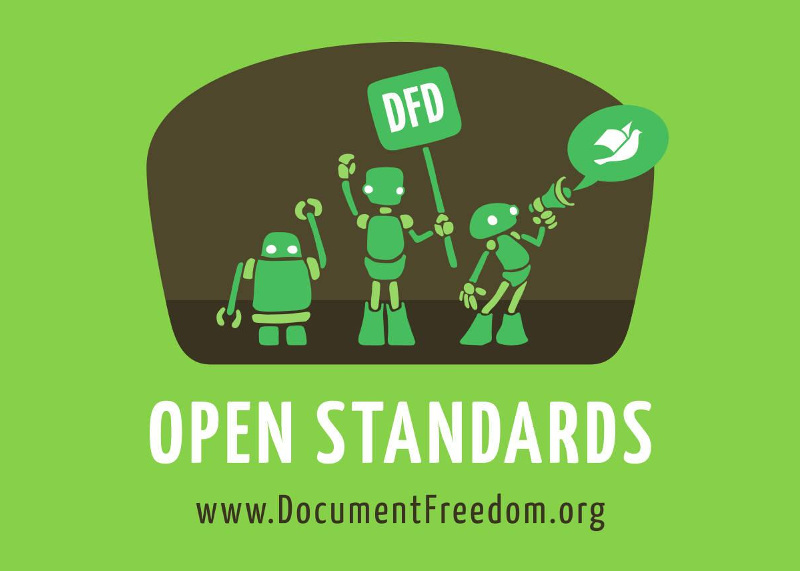Today is Document Freedom Day, the day in the year on which we pay extra attention to open standards.

Because OpenDocument Format (ODF) is the open standard that I am involved in most, I want to write a few words about it.
Since last autumn, I’m working on the ODF standard for the Dutch government. Supporting standards in government is an important task: new software comes and goes, but documents, once created, should be readable and reusable into the future.
Standards for Freedom
Standards help with freedom. If the standard is open, users can choose the software they prefer. The standard helps to create competition on the market.
That is why it is important to have a good standard and software that adheres to it.
It is the latter part, the ‘adhering to’ that I’ve given attention to lately. The promise of a standard is to have a common understanding of what the contents of a file mean. Users of ODF should be able to check how well ODF software follows the standard.
ODF Test Server
To find this out, a new project was started last fall: ODF Test Server. This is a web site, currently in development, where anyone can join and add test cases. The tests are then run automatically and results for all ODF software are updated immediately.
The site will cross-link the test files with the ODF standard and show what software covers which part of the standard.
Working on this site has been a lot of fun and a great learning experience. Ingredients from previous projects are coming together nicely to form this new site.
Building on previous work
The main ingredient is ODF AutoTests. ODF AutoTests is an offline version of the site that we are developing now. At the last ODF Plugfest, we evaluated hundreds of tests and wrote a report on them (scroll down for the numbers).
The testing site will improve on the ODF AutoTests. The tests can be evaluated online and only positively evaluated tests will show up in the results. The site will keep track of progress on fixes to the issues that are found.
If you want to join the fun, that’s possible of course. The source code is available. It is written in Haskell (server) and Java (client). (Writing a web server in Haskell is a real joy.)
Finally, I’d like to thank NLNet and Logius for making this ODF testing website possible.
Comments
Post a comment